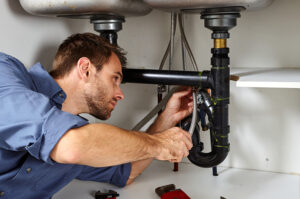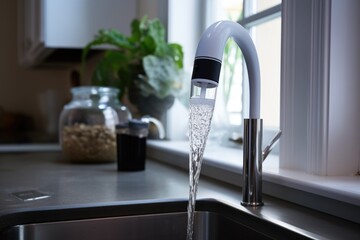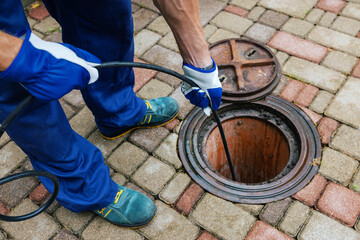Clearwater FL Plumbers are responsible for the installation and repair of plumbing systems in large buildings. Their responsibilities include ensuring that water supply lines and drainage systems meet building codes and health regulations.
When a residential plumber encounters a pesky drain clog, they’re likely to snake it out and move on. Commercial plumbers, on the other hand, deal with more complex systems that often have more floors and outlets.
In order to be a commercial plumber, it’s important to have the right qualifications. These professionals are responsible for installing and repairing plumbing systems in larger buildings like apartment complexes, hospitals, schools, shopping malls, and office buildings. Their work is more challenging than that of a residential plumber as the systems are typically more complicated and have more pipes. They also have to meet more stringent building codes.
While a high school diploma or GED certificate is sufficient for most positions, many plumbers choose to pursue an associate degree in plumbing technology to enhance their skills and knowledge base. These programs generally take four years to complete and offer courses in a variety of subjects, including plumbing design, installation, and maintenance. They also include hands-on training.
Plumbers should also consider seeking a plumbing apprenticeship, which provides on-the-job training specific to the field. These apprenticeships last 4-5 years and prepare plumbers to take the journeyman exam. After several more years of experience, plumbers can become licensed master plumbers.
While any qualified plumber can perform basic tasks, a master plumber is skilled at designing, planning, and executing complicated plumbing projects. Licensed master plumbers are also knowledgeable about the national code and state regulations that govern plumbing work. They can also supervise other plumbers and plumbing contractors.
One of the most important requirements for a master plumber is to have at least seven years of experience in the installation, repair, and service of plumbing systems. This includes a minimum of two years of hands-on experience in the installation of plumbing systems. Alternatively, applicants can substitute directly related academic or technical training for up to two years of the required experience.
In addition to having the necessary qualifications, a plumber should be comfortable working with different types of customers. A good attitude and strong communication skills are also essential to the job. Plumbers should be able to explain complex concepts in a way that is easy to understand, and they should be able to answer questions from customers about their plumbing needs. In addition, they should be able to work well under pressure and in tight spaces.
Experience
When hiring a commercial plumber, it’s important to look for one with extensive experience. They’ll be able to quickly troubleshoot and identify commercial plumbing concerns, such as leaking pipes or clogged drains, and will know how to get the job done right in a timely manner so that business operations can resume. Asking about past projects is a good way to gauge their level of expertise.
Another important skill set for commercial plumbers to have is knowledge of the regulations and codes that apply to each type of business. For example, a restaurant needs to meet different standards than an industrial factory does, and commercial plumbers need to be familiar with all of these rules. This ensures that the plumbing system meets all requirements and is safe for employees and customers.
While residential plumbers typically deal with the same types of issues, commercial plumbing services may need to be called out for a wide range of problems. These might include leaky pipes, faulty water heaters, or clogged drains and sewer lines. These issues are often more serious than those found in residential properties, and can cause a lot of damage if left unattended for a long time.
A good commercial plumber will have a broad knowledge of plumbing systems, including those that are more advanced and complex than those found in homes. They should also be able to repair and install these systems on a larger scale. They’ll be able to work with industrial equipment, like large boilers and massive sewage systems, as well as specialized fixtures for businesses, like restaurants or hospitals.
Leaky pipes and clogged toilets are common plumbing problems that require immediate attention in commercial buildings, as they can cause major damage and loss of revenue for the business. These issues tend to happen at the most inconvenient times, and can halt operations while they’re being fixed. It’s important for a commercial plumber to be available around the clock to respond to these urgent calls.
Asking about their customer service skills is a good way to gauge how well a candidate will interact with clients. Look for candidates who emphasize clear communication and accountability in their work, as this will help to reduce mistakes and provide a better experience for the customer.
Licenses
Plumbing is a highly regulated profession with licensing requirements at the state and local level. These vary slightly across states, but generally include a combination of apprenticeship, on-the-job training, and exam passes to obtain a journeyman plumber’s license. Some states also require licenses for specialty work like gas piping and mechanical plumbing.
In Tennessee, for example, you need a master plumber’s license to work on commercial projects. You can earn this by passing an exam after you complete a four-year, state-approved plumbing apprenticeship program. This includes working on projects with total costs of $25,000 or more. A special permit is required if you’re working on projects that exceed $25,000.
Licenses and permits are usually issued at the state level, but there are some exceptions. For instance, New York requires its plumbers to be licensed in the city or county where they plan to work. The city’s Department of Buildings oversees the process. Plumbers need to pass a written exam and a hands-on practical test. The written exam includes multiple-choice questions.
There are no statewide licensure rules for plumbers in New York, so you must pass the written and practical exams in every city or county where you want to work. However, the content of the tests is usually quite similar. The exams are based on the state’s construction codes.
Once you have a state license, you can apply for a job with a general contractor or start your own plumbing business. You’ll need a state-issued business license, workers’ compensation insurance, liability insurance, and possibly a cash deposit or surety bond depending on your city or county’s requirements.
In addition to these licenses and permits, you’ll need tools, a truck, and a vehicle to get to the job site. You’ll also need a mobile device to keep track of your jobs and customer records. Using a mobile device will help you stay on top of your schedule and ensure you have the right parts for each project.
Getting your plumbers license can take a few years, but once you have it, you can enjoy some of the highest pay in the country. You can also earn additional certifications to make yourself more competitive. It’s a great career choice for those who love to work with their hands and are looking for an in-demand skill.
Insurance
In addition to their technical skills, commercial plumbers must also be prepared for the risks of the job. Whether working on a new construction project or an older home, they face the potential risk of property damage, bodily injury, and more. That’s why it’s important for all plumbing professionals to have the right insurance policies in place.
Fortunately, there are several options available for those in need of commercial plumbing insurance. Some insurers offer packages specifically designed for plumbers that include coverage such as general liability, contractors error and omissions, business auto, and workers’ compensation. Other insurers may also offer an umbrella policy for additional protection.
While many people may not think about the risks of being a plumber, accidents do happen. Even the most skilled and experienced plumbers can make mistakes that cause costly damages to third parties. If a client claims that your work has caused damage to their property, a commercial plumbers general liability insurance policy may help pay for repairs or compensation.
Many plumbers also have a lot of expensive equipment that they use for their jobs. If this equipment is lost or stolen while at a job site, a tools and equipment policy can provide reimbursement for the costs of replacing them. Additionally, a commercial plumbers insurance package may offer special add-ons such as cyber liability protection to help protect your company from data breaches and cyber hacking.
Choosing the right commercial plumbing insurance policy depends on a variety of factors, including your location, the type of work you do, and the size of your business. To find the best option for you, it’s a good idea to compare quotes from several different providers. Some insurance companies offer discounts for purchasing multiple policies, and bundling your policies can often save you money. You should also consider the size of your deductible, as this will affect how much you pay in case of a claim. Lastly, it’s always a good idea to read the fine print carefully to ensure you are aware of any exclusions and conditions that might apply.


